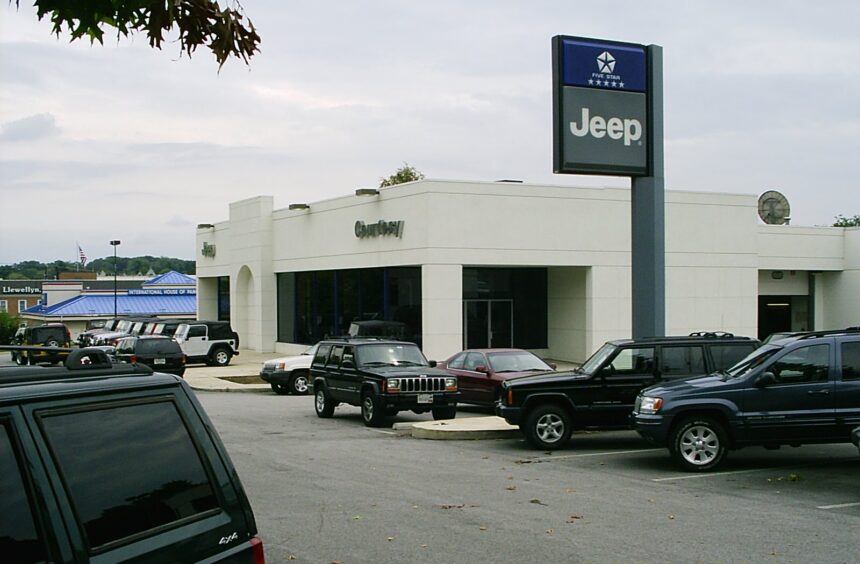The automotive industry is undergoing a transformation, one that is shaping the future of car dealerships. As technology advances and consumer preferences shift, the traditional car buying experience is evolving.
Potential buyers are no longer limited to physical locations; they can now explore virtual showrooms, making the process of finding street rods for sale as simple as a few clicks. This article discusses how these changes are influencing car dealerships and what we might expect in the years to come.
The Rise of Virtual Showrooms
The digital revolution has fundamentally changed the way consumers research and purchase vehicles. With the rise of virtual showrooms, car dealerships are embracing digital transformation to enhance the customer experience. Statistics show that over 70% of car buyers now begin their purchasing journey online, highlighting the importance of digital channels.
Virtual reality (VR) and augmented reality (AR) technologies allow customers to explore different car models from the comfort of their homes. These immersive experiences provide a realistic preview of vehicles, enabling customers to make informed decisions without visiting a physical showroom.
As technology continues to advance, virtual showrooms will become an integral part of the car buying process, offering convenience and flexibility to customers.
Personalized Customer Experience
The online world doesn’t just offer a digital showroom; it allows for a more personalized customer experience. Dealerships can leverage online tools to tailor the car-buying journey to each individual’s needs and preferences. For instance, imagine a customer who’s interested in a fuel-efficient car with ample cargo space for their growing family.
A dealership’s website could use data and algorithms to recommend specific models, highlight features that match the customer’s priorities, and even offer personalized financing options based on their credit score.
Electrification and Sustainable Practices
With growing concerns about climate change and environmental sustainability, the automotive industry is undergoing a significant shift towards electrification and sustainable practices. In the future, car dealerships will play a crucial role in promoting electric vehicles (EVs) and sustainable mobility solutions.
This will necessitate investment in charging infrastructure on dealership lots, training salespeople on the specifics of EVs, and educating customers about the benefits and considerations of electric car ownership. Dealerships that embrace the EV revolution and position themselves as knowledgeable resources will be well-placed to thrive in the coming years.
By embracing electrification and sustainable practices, car dealerships can contribute to a greener future while meeting the evolving needs of environmentally conscious consumers.
Online Sales and Direct-to-Consumer Models
The shift towards online sales channels and direct-to-consumer models is reshaping the way cars are bought and sold. In the future, car manufacturers may bypass traditional dealerships altogether and sell vehicles directly to consumers through online platforms.
With the convenience of browsing inventory, comparing prices, and completing transactions online, consumers have more control over the car-buying process than ever before. This trend towards digital retailing offers greater transparency and flexibility for consumers, while also streamlining operations and reducing overhead costs for dealerships.
Subscription Services and Mobility Solutions
The concept of car ownership itself is being challenged by the emergence of car subscription services. These services offer customers access to a variety of vehicles for a monthly fee, similar to a car rental but with more flexibility and longer-term commitments.
This can be particularly appealing to urban dwellers who might not need a car every day or who prefer the convenience of not having to worry about maintenance and insurance. Dealerships that partner with subscription services or develop their own subscription offerings can tap into this growing market segment.
These subscription services may include bundled packages with maintenance, insurance, and roadside assistance, providing convenience and peace of mind to customers.
By 2030, it’s estimated that over 400 million people globally will be using mobility services. Dealerships will offer flexible subscription plans and partner with ride-sharing platforms to provide on-demand access to vehicles. These initiatives cater to changing consumer needs and open up new revenue streams for dealerships.
Integration of AI and Machine Learning
As car dealerships become more data-driven, the integration of artificial intelligence (AI) and machine learning will play a significant role in the future. AI can be used for tasks like analyzing customer behavior, predicting future demand for certain vehicle types, and even personalizing marketing campaigns.
Machine learning can be used to automate repetitive tasks, such as scheduling appointments and generating quotes, freeing up salespeople’s time to focus on providing a more personalized customer experience.
Advanced Safety Features and Technologies
Safety remains a top priority for consumers when purchasing a vehicle. The future of car dealerships is likely to see a focus on vehicles equipped with advanced safety features and technologies.
Features like automatic emergency braking, lane departure warning, and adaptive cruise control are becoming increasingly popular, and dealerships will need to be prepared to educate customers about these features and their benefits.
Enhanced After-Sales Support
In the future, car dealerships will prioritize providing enhanced after-sales support to ensure customer satisfaction and loyalty. From maintenance and repairs to software updates and connectivity services, dealerships will offer comprehensive support throughout the ownership lifecycle.
This includes proactive maintenance scheduling, remote diagnostics, and personalized service recommendations tailored to each vehicle’s unique needs.
Conclusion
The future of car dealerships is likely to be a hybrid model that blends the best of both worlds, the physical showroom experience with the ease and convenience of online car buying.
While some traditional dealerships might struggle to adapt, those that embrace innovation, invest in technology, and prioritize the customer experience are poised to navigate the changing landscape and thrive in the years to come.






